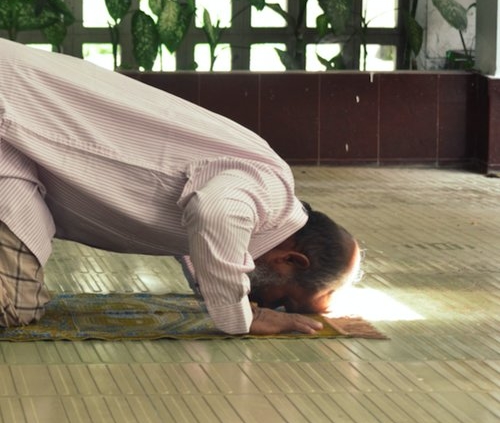Keeping Wudu in Prayer.
Hanafi Fiqh
Answered by Shaykh Abdul-Rahim Reasat
Question: Assalamu alaykum
What is the ruling on trying to avoid releasing gas during salat?
Answer: Wa ‘alaykum as-salam wa rahmatullah wa barakatuh.
I pray you are well.
Praying whilst needs to break wind or relieve yourself is prohibitively disliked. It is superior to end the prayer, renew one’s wudu, and pray properly – unless, if doing so will mean the prayer time will end before one can pray. (Shurunbulali, Maraqi al Falah).
Remembrance of Allah
The purpose of the prayer is the remembrance of Allah. When Allah first spoke to the Prophet Musa, Allah bless him and give him peace, He said, “…And perfectly perform the prayer for my remembrance.” (Qur’an, 20:14)
The perfect performance (Iqama) is the outward manifestation of the body. One shows slavehood to Allah by adhering to the fard, wajib, sunna, and adab elements of the prayer. This all helps in inward aspect: focusing on Allah.
Trying to pray when one needs to answer the call of nature prevents one from remembering Allah, and it goes against the perfecting of the prayer. I hope that helps.
May Allah make all our prayers perfect – outwardly and inwardly. Amin.
Wassalam,
[Shaykh] Abdul-Rahim Reasat
Shaykh Abdul-Rahim Reasat began his studies in Arabic Grammar and Morphology in 2005. After graduating with a degree in English and History he moved to Damascus in 2007 to study and sit at the feet of some of the most erudite scholars of our time.
Over the following eighteen months he studied a traditional curriculum, studying with scholars such as Shaykh Adnan Darwish, Shaykh Abdurrahman Arjan, Shaykh Hussain Darwish and Shaykh Muhammad Darwish.
In late 2008 he moved to Amman, Jordan, where he continued his studies for the next six years, in Fiqh, Usul al-Fiqh, Theology, Hadith Methodology and Commentary, Shama’il, and Logic with teachers such as Dr Ashraf Muneeb, Dr Salah Abu’l-Hajj, Dr Hamza al-Bakri, Shaykh Ahmad Hasanat, Dr Mansur Abu Zina amongst others. He was also given two licences of mastery in the science of Qur’anic recital by Shakh Samir Jabr and Shaykh Yahya Qandil.
His true passion, however, arose in the presence of Shaykh Ali Hani, considered by many to be one of the foremost tafsir scholars of our time who provided him with the keys to the vast knowledge of the Quran. With Shaykh Ali, he was able to study an extensive curriculum of Qur’anic Sciences, Tafsir, Arabic Grammar, and Rhetoric.
When he finally left Jordan for the UK in 2014, Shaykh Ali gave him his distinct blessing and still recommends students in the UK to seek out Shaykh Abdul-Rahim for Quranic studies. Since his return he has trained as a therapist and has helped a number of people overcome emotional and psychosomatic issues. He is a keen promoter of emotional and mental health.
